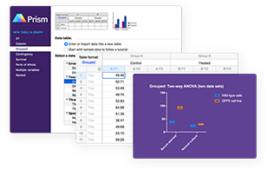 In the recent issue of EMBO reports, Barbara Han of the Cary Institute of Ecosystem Studies and John Drake of the University of Georgia Odum School of Ecology call for the creation of a global early warning system for infectious diseases. Such a system would use computer models to tap into environmental, epidemiological and molecular data, gathering the intelligence needed to forecast where disease risk is high and what actions could prevent outbreaks or contain epidemics.
In the recent issue of EMBO reports, Barbara Han of the Cary Institute of Ecosystem Studies and John Drake of the University of Georgia Odum School of Ecology call for the creation of a global early warning system for infectious diseases. Such a system would use computer models to tap into environmental, epidemiological and molecular data, gathering the intelligence needed to forecast where disease risk is high and what actions could prevent outbreaks or contain epidemics.
An early warning system would shift the infectious disease paradigm from reactive — where first responders scramble to contain active threats, as in the recent Ebola and Zika outbreaks — to pre-emptive management of risk. Infectious disease intelligence could assess vulnerabilities based on the ebb and flow of risk in real-time, and inform targeted responses that minimize damages.
“For far too long our main strategy for tackling infectious disease has been defense after emergence, when a lot of people are already suffering,” Han explained, “We are at an exciting point in time where technology and Big Data present us with another option, one that is anticipatory and has real potential to improve global health security.”
Han and Drake propose that a three-tiered system with “watches,” “warnings” and “emergencies” — like that used for severe weather alerts — would help decision makers and the public to make more informed decisions. They explain, “Much of the destructive potential of infectious diseases stems from the fact that they often strike unexpectedly, leaving little time for preparation. The best countermeasure is therefore an early warning to give affected regions or communities more time to prepare for the impact.”
Machine learning methods have already proven successful at mining data from multiple sources to identify animal species that are likely to carry disease and geographic hotspots vulnerable to outbreaks of specific pathogens. Scaling up this effort to create a tool for global health authorities will require an increase in the stream of data available for modeling, investment in a quantitative workforce, and open dialogue among academic modelers and decision makers.
Data sharing is essential. Han explains, “Accurately predicting potential outbreaks and guiding effective responses relies on rapidly assimilating data from multiple sources to identify trigger conditions in real time. Ironically, in this age of Big Data, one of the few remaining hard limits on our forecasting ability is the volume and quality of basic scientific information. We can’t collect data on everything — yet — but, we are getting a better sense of the kinds of data that would be the most useful.”
Drake notes, “One of the key problems is figuring out how to integrate multiple data streams. Also, there are some aspects of epidemics that are poorly understood and can change quickly, such as how individual behavior changes in the face of a perceived acute health threat. We need better sources of information about these processes, if we are to develop a reliable basis for forecasting.”
A global early warning system for infectious diseases would be transformative in efforts to advance global health security and improve global health equity.




